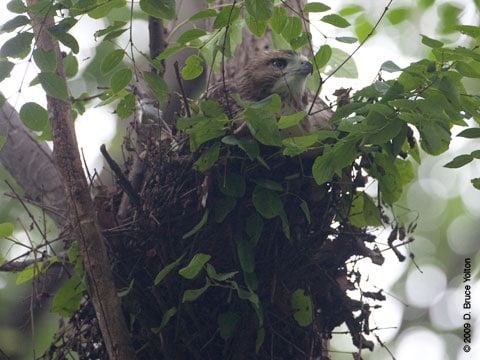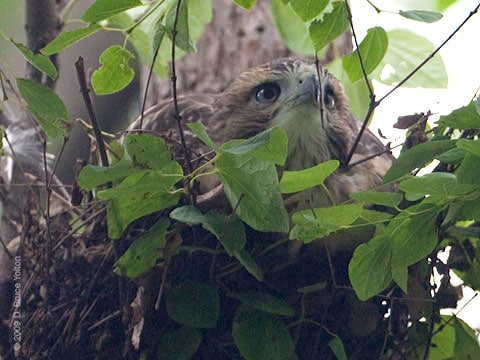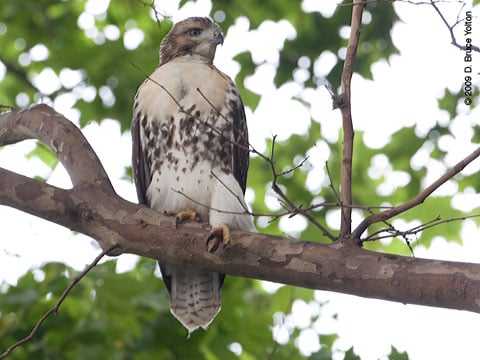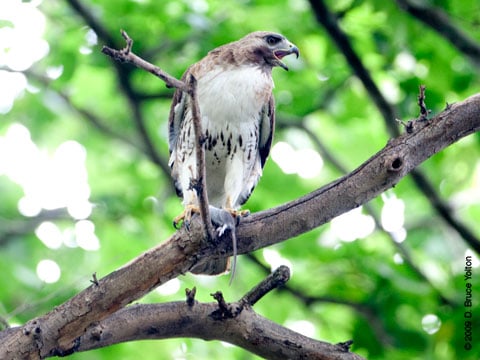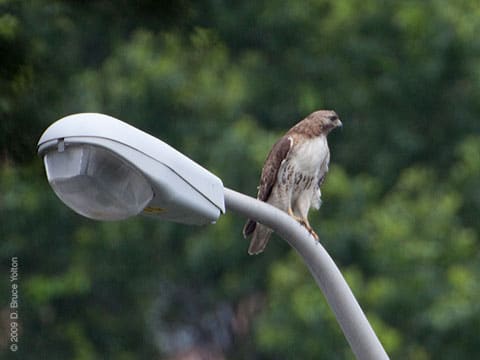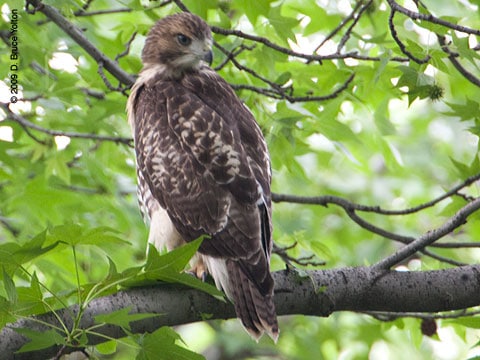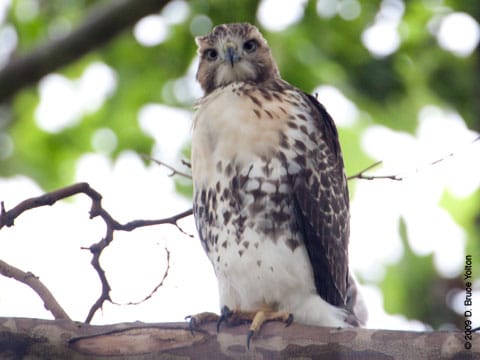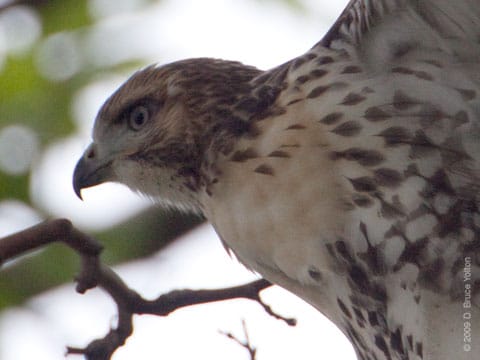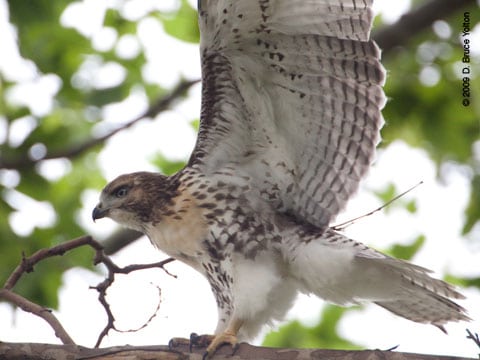I visited the Riverside Nest in the late afternoon and early evening. Both youngsters were about a block south of the nest tree. One of the youngsters was sitting in a nest. Whose nest it was unclear, but thankfully it looked to be unused. The fledgling looked very happy to have found it.
The father arrived with a mouse, but seeing that both youngsters had been fed, ate it himself. I left just before a powerful storm wiped through the New York area. I managed to get a cab just in time to stay dry.
I need to comment on a post by Lincoln Karim which he posted on his website, www.palemale.com. He lashed out at the Urban Park rangers for failing to send the dead Riverside Park fledgling to Ward Stone’s lab for testing. A necropsy was unnecessary, since the cause of death was clearly an auto accident. There is no reason to lash out at dedicated public employees and print their phone numbers, so they can be harassed by rabid hawk watchers.
Behind the scenes, the Urban Park Rangers, in association with concerned hawk watchers and New York City Audubon have come together this year to begin to address eyass and fledgling safety issues. The first document created by the group was an eyass safety document with protocols for handling emergencies.
I’m sure more work will come from the group, which has also started an informal network to report problems, and get volunteers to monitor nest locations. Already this season, members of the group have helped with rescues of Red-tails and American Kestrels.
They have also been helping monitor nest sites for rehabilitators, so that prematurely fledged birds can be returned to their parents. This included making sure that two fledglings could be reunited with their family at the Unisphere nest site.
Improving the lives of Red-tails and other hawks in New York will only happen, if we patiently work with city employees and agencies, non-profits like New York City Audubon and the Central Park Conservancy, and the network of Vets and Rehabbers who volunteer their services to bring birds back to good health. None of these organizations have any obligation to support Red-tailed hawks.
Hawk enthusiasts, rather than lashing out at organizations for what they aren’t doing to help raptors in New York, should be asking what have they themselves done to support these organizations.
Have you volunteered your time, your talents, shared your experiences or provided financial assistance to these groups? If you haven’t and you call yourself a hawk lover, why not?
